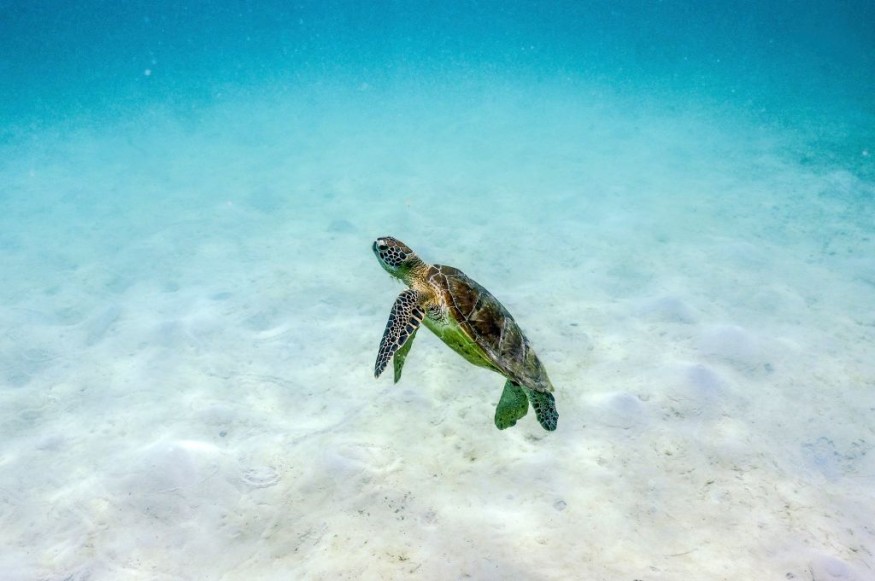
Malaysia's critically endangered marine turtles confront a new threat: rising temperatures caused by climate change.
Scientists in the Southeast Asian nation claim the heat is warming the sand and disrupting the balance of male and female hatchlings that turtles require to live.
Fewer Hatched Eggs
Observations at Chagar Hutang, one of the country's most important nesting locations, show that very few males have hatched from eggs in recent years. The story is similar on other beaches around the east coast.
"For many areas on the east coast of the peninsular from 2019 until 2022, the number of male turtles hatched is almost zero," Universiti Malaysia Terengganu (UMT) turtle expert Mohd Uzair Rusli said.
Turtle eggs can incubate for up to 60 days in the sand and are extremely temperature-sensitive.
A green turtle nest at 29.2 degrees Celsius (84.6 Fahrenheit) produces an equal number of males and females, but a single degree of temperature variation can entirely flip the hatchlings' sex in one direction or another.
According to Uzair, this narrow range is thought to be "an evolutionary adaptation that balanced the advantages of producing both males and females.".
He noted that Malaysian beach temperatures were not being monitored because turtles nestled at random locations, even on the same beach, and that UMT relied on sea surface temperature reports for decades.
An earlier study said that rising sea temperatures are harming sea turtle numbers by warming nesting sites on beaches around the world.
The climate change-driven phenomenon may result in local extinctions of already endangered reptiles, which have extended breeding cycles and are slower to adapt than many other species, such as birds or butterflies.
Malaysia's Conservation Effort
Turtles, which, when fully grown, return to the same beach where they were hatched to lay their eggs, confront immense hurdles. On average, only one in every 1,000 turtle hatchlings survives the 15-year trek to adulthood.
Uzair is concerned that when temperatures rise, there may be insufficient males in Malaysian seas to mate with females.
Malaysia is home to four species of sea turtles, and the country's beaches are frequented by thousands of them each year, particularly in Terengganu.
Their populations have declined throughout the years, owing primarily to human activity such as fishing, pollution, habitat destruction, and egg theft for human use.
As turtle populations have declined, conservationists have worked to help Malaysia's turtle populations rebound.
Authorities designated the isolated 350-meter-long Chagar Hutang beach as a conservation site to be managed by UMT in 1993, and a volunteer program was established a few years later.
Since then, the institution has been tracking turtle arrivals and relocating nests away from predators (monitor lizards are known to consume turtle eggs) and human hazards.
Their efforts have paid off. In 2022, there were a record 2,180 nests, up from a few hundred per year in the 1990s. However, their progress is being eclipsed by global warming and other man-made issues.
The National Oceanic and Atmospheric Administration (NOAA) of the United States reported a record daily sea surface temperature of 21.07 degrees Celsius (69.93 °F) in March.
Related Article : Sea Turtles Threatened By Plastic Pollution, Researchers Say
© 2025 NatureWorldNews.com All rights reserved. Do not reproduce without permission.





